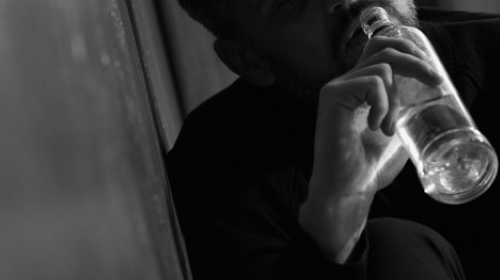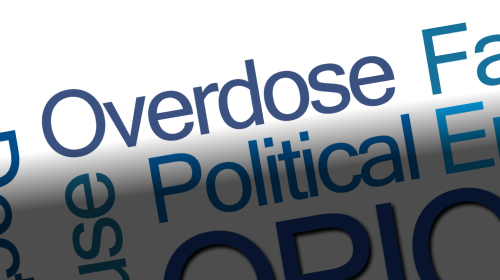Expert Insights
Over the past two decades, overdose deaths in Tennessee have risen by 1,015%. That’s not a typo. The increase is more than one thousand percent. Numbers are just as alarming locally. In just one year, from 2021-2022, drug overdoses in Chattanooga increased by 28%. These staggering numbers demonstrate an urgent need for intervention in the Volunteer State. Officials have focused efforts on naloxone availability, limits on opioid prescribing, and harm-reduction strategies such as fentanyl-testing strips. But substance abuse education and treatment must be the priorities. People need to understand more about addiction and have the resources available to help them break free. That’s how we’ll save lives in Chattanooga.
~ Kerry Nenn
How Expensive is Drug Rehab in Chattanooga?
The cost of Chattanooga drug rehabs varies depending on where you choose to go and what type of program you enter. Other factors include:
Treatment setting (do you want to live in a residential rehab or go to outpatient services?)
Features and amenities, such as a higher cost to attend rehab with a gym and spa versus one with fewer high-end offerings
How long do you want to attend treatment (30 days program vs. 90 days or longer)?
Available government and non-profit funding in the area to lower the cost of care
Choosing rehab facilities or detox centers in Chattanooga in-network with health insurance provider
Many people can utilize their health insurance policy to help cover the cost of substance use disorder (SUD) treatment in Tennessee. Rehab can be paid for by private health insurance policies offered exclusively to employees, as well as public options offered on the health insurance marketplace and federal programs Medicaid and Medicare.
Are There Low-Cost and Free Drug Rehab Centers in Chattanooga?
If you are among the many Chattanoogans underinsured or have no health insurance, look for an alcohol or drug rehab with financing options. These can include a sliding fee scale that lowers your annual income, payment plans, and loans or scholarships for people with no other option.
To find these programs, call your local social services agency, or ask your doctor to give you a referral to a local low-income program. You can also reach out to the Chattanooga alcohol rehabs you’re interested in and check their website for financial assistance options or speak with an intake representative to inquire.
How Does Chattanooga Compare in Alcohol and Drug Use?
Chattanooga is a naturally beautiful city on the bank of the Tennessee River in the south of the state. It’s home to over 185,000 residents and is the fourth-largest city in the Volunteer State.1 But, like so many other cities across the country, it has struggled with rising rates of drug and alcohol misuse. If you or someone you love is battling addiction, know that there is help within reach. There are more than 30 accredited alcohol and drug rehab centers in Chattanooga and the surrounding area.2
Data from agencies such as the Center for Disease Control and the Tennessee Department of Health can give us a fairly clear view of how the substance use epidemic has affected the area. Across the state, we can see that:1,2

Inpatient rehab stays for cocaine use rose 24% between 2018 and 2020.

Outpatient visits initiated after an overdose rose 143% between 2016 and 2020.

Alcohol-related overdose deaths rose 34.8% between 2018 and 2020.

Drug-related overdose deaths were 11% during the same period across the state.
The rate of drug-related overdoses in Hamilton County, the seat of Chattanooga, is slightly higher than that of the state, though they rose only 6% in the county between 2018 and 2020.
Alcohol overdose deaths rose 20% in that period in Hamilton County and had a higher rate of prevalence than in the rest of the state.
Drug and Alcohol Laws in Chattanooga, TN
The state of Tennessee has enacted various laws and policies to help residents when their lives are impacted by drugs and alcohol.
Good Samaritan Law or Tennessee Addiction Treatment Act: If someone is in the presence of someone experiencing an overdose or is overdosing themselves, they can call 911 with less fear of legal consequences.3 Normally, if you’re found to be using or holding illegal substances or holding paraphernalia, you could be charged with a crime. To help save the lives of people who need emergency overdose reversal medication, the state passed this law to encourage people to ask for help through 911 even if they are participating in illegal activities.
Naloxone Training Law: This law dictates that emergency personnel and first responders need to be trained in the proper use of the drug Narcan, an opiate overdose reversal tool. The training consists of a 15–20-minute course online followed by an exam on correct administration and other subjects.
Family and Medical Leave Act (FMLA): The federal FMLA is made to protect people who need to take time away from work to seek medical care, including undergoing rehab. These laws allow workers of most companies with over 50 employees to give twelve weeks of unpaid leave, with the guarantee that their position or one of equal value will be waiting for them. These laws don’t provide any type of funding, simply the promise that an employer won’t fire an employee for taking time off to seek treatment.
Opiate Prescription Laws: To prevent people from becoming hooked on highly addictive pain medication, laws exist in Tennessee that limit the amount of opiate medication a person can be prescribed and for how long. These laws also regulate the use of medication-assisted treatments (MATs) in outpatient settings to help prevent misuse.
Choosing the Right Level of Care
Treatment for substance use disorder is given along a “continuum of care.” This includes early intervention for high-risk situations and concludes with aftercare and lifelong support. Though people start “on the path” at any point, the general timeline proceeds in the following order:
Early intervention: This consists of providing education and assistance to people who are in high-risk situations for substance use disorder.
Medical Detox: Before you start rehab, you may need to clean your system out of substances you were using. A medical detox can help keep you safe and comfortable during withdrawal.
Inpatient: Inpatient rehab, also referred to as residential care, involves 24/7 care in a psychiatric hospital or residential treatment center.
Outpatient: This ranges from partial hospitalization programs (PHPs) to intensive outpatient programs (IOPs) and standard outpatient treatment. They differ by the amount of time spent in treatment per day and week.
Aftercare: It’s important to have an aftercare plan in place once you finish rehab. It will help you continue healthy living habits and provide you with supportive communities to continue with sobriety.
Should You Travel for Drug and Alcohol Rehab in Chattanooga?

Millions of people find a reason to visit Chattanooga each year, eager to explore beautiful natural spaces such as the Rock City Gardens or Ruby Halls cave system with an underground waterfall. The city sits next to the great Tennessee River in the southeastern part of the state. If you want to explore the region or visit nearby friends or family, then think about moving here for rehab.
Having a supportive friend and family network is extremely valuable when undergoing substance use treatment, providing a safe environment for you while you aren’t in your therapy sessions. If you have health insurance that provides coverage in Chattanooga or know of a rehab that you are highly interested in here, then consider taking a trip.
Another reason that people move to Tennessee for rehab is because of economic opportunity. For example, nearby Chattanooga State Community College has a range of accredited programs that might interest you, such as nursing and applied technology. There is also a range of places to work in the area, including numerous medical centers, retailers, and other businesses.
There are multiple neighborhoods in the city, each with its unique aspects. Starting in the north, the North Shore neighborhood, across the Walnut Street Bridge, is a quaint city on the river. The neighborhood has a bevy of fun outdoor attractions, such as Coolidge Park, with its antique working carousel, plenty of places to stop for snacks, and a pedestrian-only bridge for a beautiful (and safe!) walk about the river.
To the east along the river is the Riverview neighborhood. This locale features Riverview Park, where you can bike, golf, and observe the bountiful wildlife in the area. There are also plenty of dining establishments nearby and places to shop.
The southern part of Chattanooga also has plenty of places to live, eat, and shop. The Brainerd neighborhood is a lovely suburban area with tree-lined sidewalks. There are also various churches and shopping centers here, as well as Minnehaha Park and easy access to the highway.
Resources
- Chattanooga, Tennessee Population 2021 (Demographics, Maps, Graphs). (n.d.). Worldpopulationreview.com.
- FindTreatment.gov. (n.d.). FindTreatment.gov.
- Center for Disease Control. (2022). CDC Wonder.
- TN Department of Health. (2022). Data Dashboard.
- TN.gov. (2022). Naloxone Training Information, Narcan; The “Good Samaritan” Law Protects You (see Public Chapter 623)
- U.S. Department of Labor. (2022). Family and Medical Leave Act.
- TN.gov. (2022). Laws and Policies.



